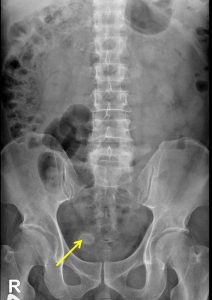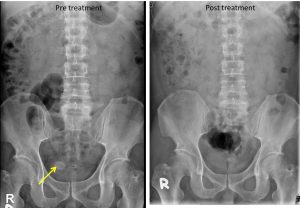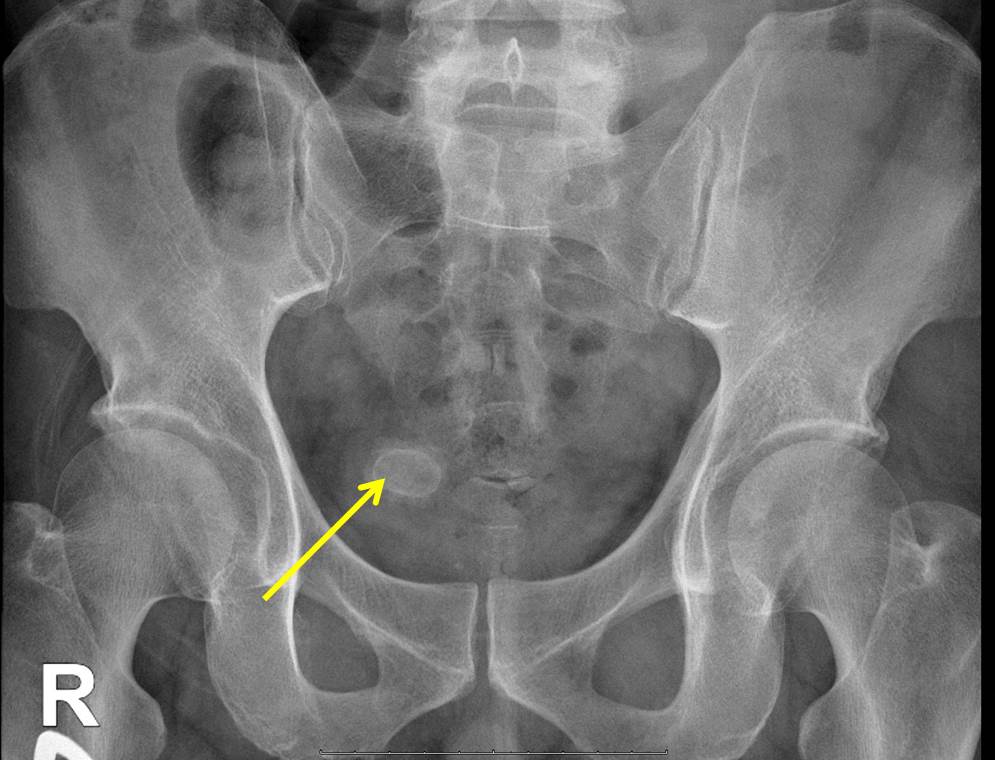Clinical:
- A 58 years old man
- No previous medical illness
- Presented with recurrent hematuria for few months
- No associated constitutional symptoms

Radiographic findings:
- There is an oval-shaped opacity at the right hemipelvis measuring about 1.9 x 1.4 cm in size that could represent a urinary bladder calculus.
- No other obvious opacity along the genitourinary tract.
- No obvious soft tissue mass. No bowel dilatation or displacement.
- Visualized bones and soft tissues appear normal.
Diagnosis: Urinary bladder calculus.
Discussion:
- Primary bladder calculus is stone forms de novo in the bladder.
- Secondary calculus is either stone migrated down from renal or ureteric stone or stone from concretions on foreign body material such as urinary catheter.
- The most common cause of primary urinary bladder calculus are bladder outlet obtruction, cystocele, neurogenic bladder or foreign body.
- Radiograph shows densely radiopaque focus, may be single or multiple and often large in size. Lamination is also frequently observed.
- On ultrasound, calculus is mobile, echogenic with posterior shadowing. Associated bladder wall thickening can be seen due to inflammation.
Progress of patient:
- Ultrasound of KUB shows prostatomegaly.
- Patient is treated medically for BPH.
- Vesicolithotripsy done.
- KUB radiograph after treatment shows no residual calculus.


Recent Comments